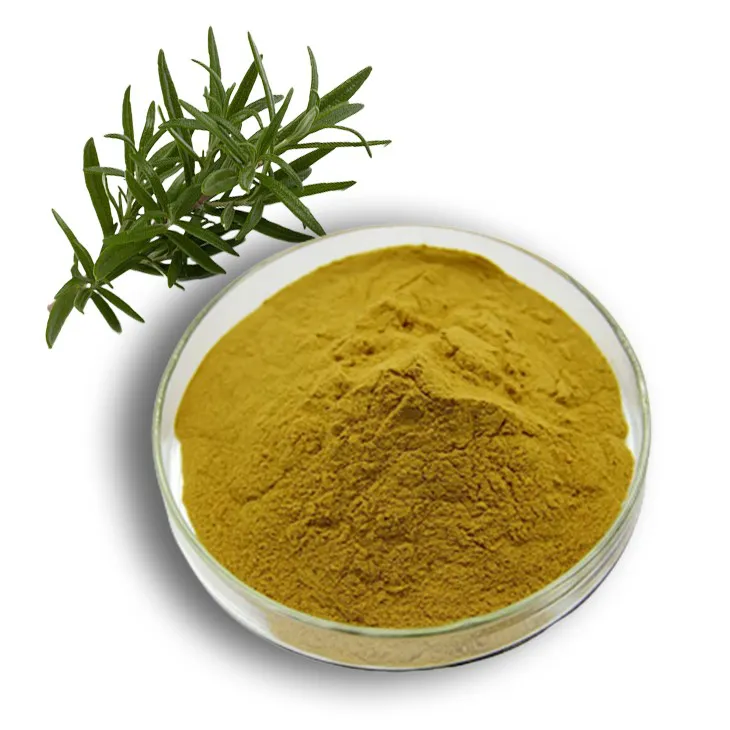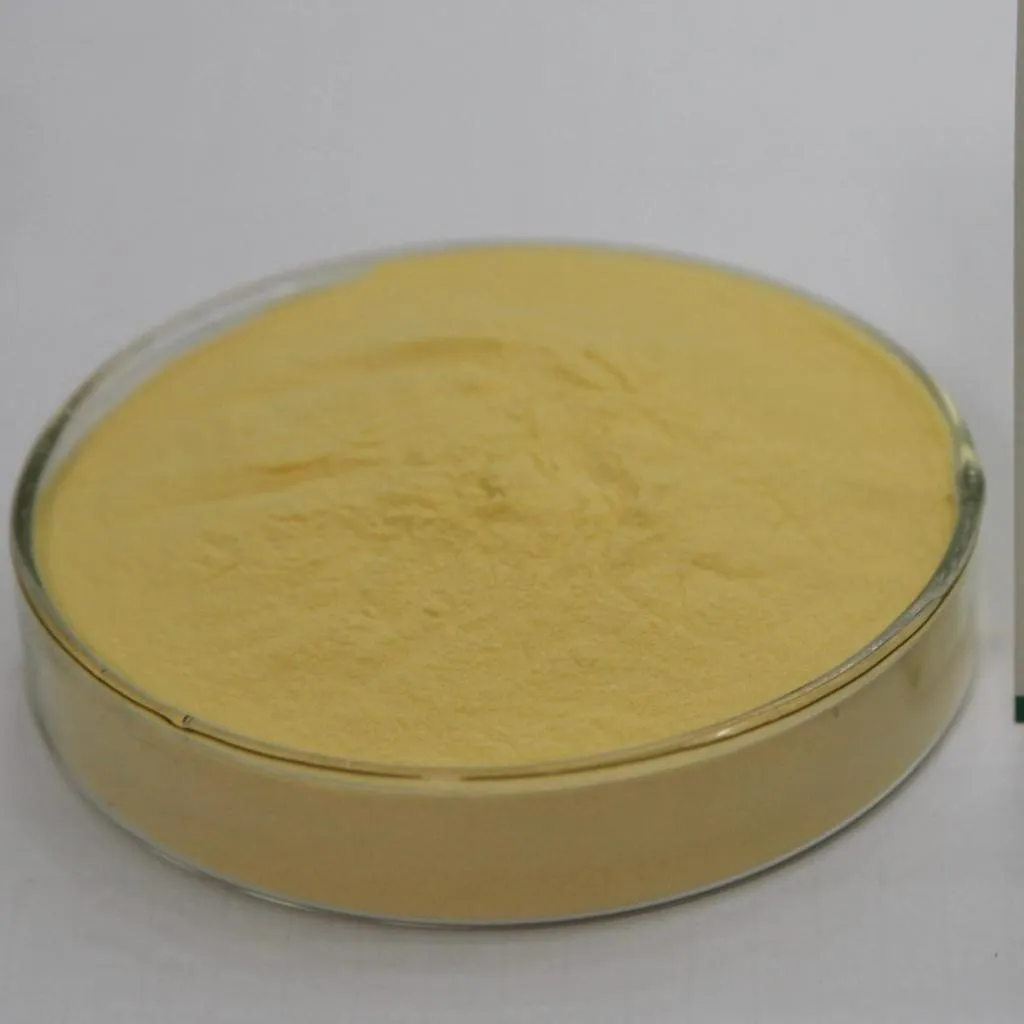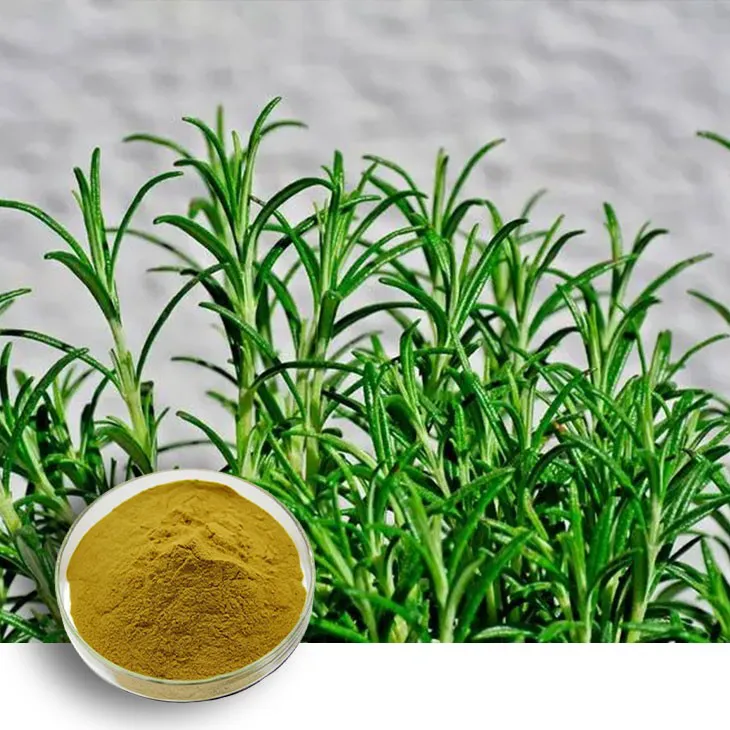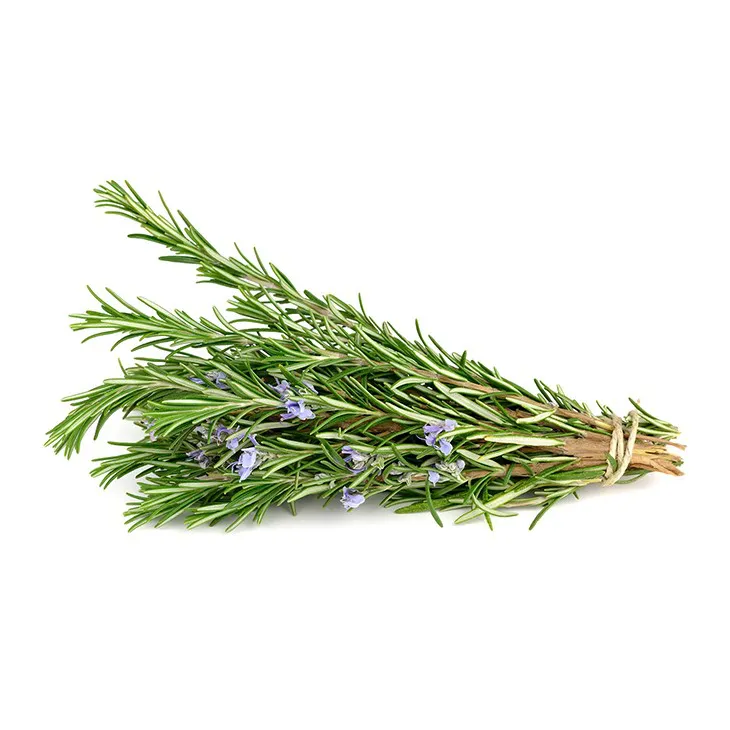- 0086-571-85302990
- sales@greenskybio.com
The Most Highly - Praised Rosemary Extract.
2024-11-29

1. Introduction to Rosemary extract
Rosemary extract has become a highly - regarded ingredient in various industries. It is derived from the rosemary plant (Rosmarinus officinalis), which is native to the Mediterranean region. The extract is obtained through different extraction methods, such as solvent extraction or supercritical fluid extraction, to preserve its valuable components.

2. Rosemary extract in the Natural Products Market
Purity and Potency
- In the natural products market, the purity of rosemary extract is highly valued. It is often free from synthetic additives and contaminants, making it a preferred choice for consumers who are conscious about using natural and pure products.
- The potency of rosemary extract lies in its rich composition of bioactive compounds. These compounds are responsible for the various beneficial properties associated with the extract.

3. Applications in Cosmetics
Rejuvenation and Protection
- Rosemary extract is widely used in cosmetics, ranging from creams to shampoos. In creams, it helps in rejuvenating the skin. It has antioxidant properties that combat free radicals, which are known to cause premature aging of the skin. By neutralizing these free radicals, rosemary extract can reduce the appearance of wrinkles, fine lines, and other signs of aging.
- When it comes to shampoos, rosemary extract is beneficial for protecting the hair. It can improve the overall health of the hair by strengthening the hair follicles. This helps in reducing hair fall and promoting hair growth. Additionally, it gives the hair a natural shine and luster.
- Anti - Inflammatory Effects Rosemary extract also has anti - inflammatory properties in the context of cosmetics. It can soothe irritated skin, whether it is due to environmental factors or certain skin conditions. This makes it suitable for use in products designed for sensitive skin types.

4. Traditional Medicine and Rosemary Extract
Antibacterial and Antifungal Properties
- For a long time, rosemary extract has been utilized in traditional medicine for its antibacterial and antifungal properties. In traditional healing practices, it has been used to treat various infections. The antibacterial properties of rosemary extract can help in fighting off harmful bacteria on the skin or in the body. This can be useful in preventing and treating skin infections such as acne, which is often caused by bacteria.
- The antifungal nature of the extract is beneficial for dealing with fungal infections. For example, it can be used to treat fungal infections on the scalp or on the skin. It inhibits the growth of fungi, thereby helping to relieve symptoms and promote healing.
-
Other Traditional Uses
- Rosemary extract has also been used in traditional medicine to improve digestion. It can stimulate the production of digestive enzymes, which aids in the breakdown of food and the absorption of nutrients.
- It has been believed to have a positive impact on the circulatory system. Some traditional applications suggest that it can help in improving blood circulation, which is important for overall health.

5. The Chemical Composition of Rosemary Extract
Rosmarinic Acid
- One of the key components in rosemary extract is rosmarinic acid. This compound is a powerful antioxidant. It plays a significant role in the antioxidant activity of the extract, protecting cells from oxidative damage.
- Rosmarinic acid also has anti - inflammatory properties. It can modulate the body's inflammatory response, which is beneficial in various health conditions and in maintaining healthy skin and hair.
Carnosic Acid
- Carnosic acid is another important bioactive compound in rosemary extract. It is known for its strong antioxidant capabilities. It can scavenge free radicals more effectively than some other antioxidants, thereby providing enhanced protection to cells and tissues.
- Studies have also shown that carnosic acid may have potential anti - cancer properties. While more research is needed in this area, it is an area of great interest for future investigations regarding the health benefits of rosemary extract.
Essential Oils
- Rosemary extract contains essential oils, which contribute to its characteristic aroma. These essential oils also have their own set of properties. For example, they can have antimicrobial effects, further adding to the antibacterial and antifungal properties of the overall extract.
- They can also have a relaxing effect when used in aromatherapy. The scent of rosemary essential oils can help in reducing stress and anxiety, promoting a sense of well - being.
6. Scientific Research on Rosemary Extract
Antioxidant Research
- Many scientific studies have focused on the antioxidant properties of rosemary extract. These studies have demonstrated that the extract can effectively scavenge free radicals in vitro and in vivo. In vitro studies often involve testing the extract's ability to neutralize free radicals in a test tube or cell culture environment. In vivo studies, on the other hand, look at the effects of the extract on living organisms, such as animals or humans.
- The antioxidant activity of rosemary extract has been compared to other well - known antioxidants. In some cases, it has shown comparable or even superior antioxidant capabilities, making it a promising ingredient for use in various applications where antioxidant protection is desired.
Anti - Inflammatory Research
- Research into the anti - inflammatory properties of rosemary extract has also been extensive. Scientists have investigated how the extract can affect the body's inflammatory pathways. It has been found that certain compounds in the extract, such as rosmarinic acid and carnosic acid, can inhibit the production of inflammatory mediators. These mediators are substances that are released during the inflammatory process and can cause tissue damage and pain.
- Clinical trials have been conducted to evaluate the anti - inflammatory effects of rosemary extract in humans. For example, in some studies involving patients with inflammatory skin conditions, the use of products containing rosemary extract has shown improvement in symptoms such as redness, swelling, and itching.
Research on Hair and Skin Health
- Regarding hair health, research has been carried out to understand how rosemary extract promotes hair growth. It has been hypothesized that the extract can stimulate hair follicles by improving blood circulation in the scalp. Some studies have also looked at the effects of rosemary extract on the production of keratin, the protein that makes up hair. An increase in keratin production can lead to stronger and healthier hair.
- For skin health, in addition to its antioxidant and anti - inflammatory effects, research has explored the potential of rosemary extract in wound healing. It has been found that the extract can enhance the process of wound repair by promoting cell proliferation and collagen synthesis. Collagen is an important protein in the skin that provides structure and elasticity.
7. Safety and Precautions
General Safety
- Rosemary extract is generally considered safe for use in cosmetics and as a dietary supplement. However, like any natural product, it may cause allergic reactions in some individuals. People with known allergies to plants in the Lamiaceae family (which includes rosemary) should exercise caution when using products containing rosemary extract.
- When used in cosmetics, it is important to follow the recommended usage instructions. Overuse of products containing rosemary extract may lead to skin irritation, especially for those with sensitive skin.
Dietary Supplement Precautions
- If rosemary extract is used as a dietary supplement, it is advisable to consult a healthcare provider before starting use. This is especially important for individuals with underlying health conditions or those taking medications, as there may be potential interactions.
- Some dietary supplements containing rosemary extract may also have different concentrations and formulations. It is crucial to choose a reliable product from a reputable source to ensure safety and effectiveness.
8. Conclusion
Rosemary extract has rightfully earned its highly - praised status. Its diverse range of properties, from antioxidant and anti - inflammatory to antibacterial and antifungal, make it a valuable ingredient in the natural products market, cosmetics, and traditional medicine. The scientific research conducted on it further validates its potential benefits. However, it is important to use it safely and be aware of any potential precautions. As research continues, we can expect to discover even more about the wonders of rosemary extract and its applications in various fields.
FAQ:
What are the main applications of rosemary extract in cosmetics?
Rosemary extract is used in a wide variety of cosmetic products, such as creams and shampoos. It can rejuvenate the skin and hair. For example, it helps to keep the skin looking youthful by promoting cell renewal. In shampoos, it can strengthen the hair follicles and add shine to the hair.
How does rosemary extract show its antibacterial and antifungal properties in traditional medicine?
In traditional medicine, rosemary extract contains certain compounds that are responsible for its antibacterial and antifungal properties. These compounds can disrupt the cell walls or metabolic processes of bacteria and fungi. For instance, it may inhibit the growth of harmful bacteria on the skin or in the body, thus helping in the treatment of various infections.
What makes rosemary extract pure and potent in the natural products market?
The purity of rosemary extract in the natural products market is often due to careful extraction methods. High - quality rosemary plants are selected and processed using advanced techniques to ensure minimal contamination. Its potency comes from the presence of active ingredients like antioxidants. These antioxidants are highly concentrated in the extract, which gives it the ability to have strong effects on various aspects such as anti - aging and protection.
Can rosemary extract be used for other purposes apart from cosmetics and traditional medicine?
Yes, rosemary extract can also be used in the food industry. It can act as a natural preservative due to its antibacterial properties. Additionally, it can add flavor to certain foods. In aromatherapy, rosemary extract is used for its relaxing and invigorating scent, which can help relieve stress and improve mental clarity.
How is rosemary extract processed to maintain its quality?
To maintain the quality of rosemary extract, it is typically processed through methods like steam distillation or solvent extraction. Steam distillation helps to separate the essential oils and active compounds from the rosemary plant without introducing harmful chemicals. Solvent extraction, when done properly with food - grade solvents, can also effectively isolate the desired components while ensuring the final product is pure and of high quality.
Related literature
- The Therapeutic Properties of Rosemary Extract"
- "Rosemary Extract: A Multifunctional Ingredient in Cosmetics"
- "Rosemary Extract and Its Role in Traditional and Modern Medicine"
- ▶ Hesperidin
- ▶ Citrus Bioflavonoids
- ▶ Plant Extract
- ▶ lycopene
- ▶ Diosmin
- ▶ Grape seed extract
- ▶ Sea buckthorn Juice Powder
- ▶ Fruit Juice Powder
- ▶ Hops Extract
- ▶ Artichoke Extract
- ▶ Mushroom extract
- ▶ Astaxanthin
- ▶ Green Tea Extract
- ▶ Curcumin
- ▶ Horse Chestnut Extract
- ▶ Other Product
- ▶ Boswellia Serrata Extract
- ▶ Resveratrol
- ▶ Marigold Extract
- ▶ Grape Leaf Extract
- ▶ New Product
- ▶ Aminolevulinic acid
- ▶ Cranberry Extract
- ▶ Red Yeast Rice
- ▶ Red Wine Extract
-
Avocado Extract Powder
2024-11-29
-
Nettle leaf extract
2024-11-29
-
Artichoke Leaf Extract
2024-11-29
-
Sugarcane Extract
2024-11-29
-
Propolis Extract Powder
2024-11-29
-
Cactus Extract
2024-11-29
-
Phyllanthus Emblica Extract
2024-11-29
-
Curcuma Longa Extract/Turmeric extract
2024-11-29
-
Longan Extract
2024-11-29
-
Tongkat Ali Extract Powder
2024-11-29





















